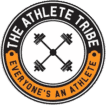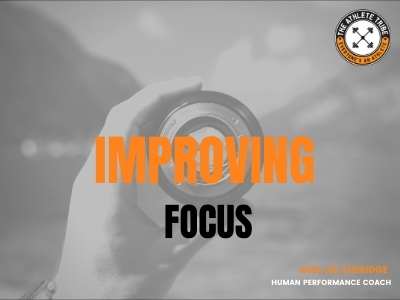When was the last time that you were able to sit down and 100% focus on one task without notifications from a device or a feeling of needing to be connected?
This feeling of being connected is hugely important to people. Research highlights that when people were unable to receive notifications, they experienced higher levels of anxiety and “fear of missing out” (FoMO)(Fitz, 2019).
The myth of multitasking has thankfully to come to an end. Of course, we can do more than one thing at a time, drive a car and have a conversation, for example. But when it comes to performance at work, it’s a different story. More than ten years ago, Mark et al (2008) highlighted that people needed to work faster to compensate for interruptions at work, leaving staff more stressed, frustrated and under more significant pressure.
How To Improve Focus
When working with a client, we start by setting the smallest goal – to block in time for concentrated work. This might be one or two 30 minute sessions per week. How we go about this is by using the P.E.A.R. thinking method.
P – Plan
Proactive Vs Reactive is an area that I will be talking about in greater detail in another article. There are times, of course, that we need to be reactive, especially in agile companies. However, I am a firm believer that senior business leaders need to be proactive. We should be placing enormous importance on M.I.T’s – most important tasks. These are the tasks that make the most significant difference in the long term. Here are a few steps:
1. Plan the time in the week, block out a meeting with yourself.
2. Set clear goals to be achieved in this period.
3. Let everyone know that you are unavailable during these times.
E – Environment
We have had to adapt our work and training environment over the last 12 months, and we can agree that this might be the case moving forward. To enable us to have distraction-free time, we need to set up the environment to allow for it.
1. Notifications off, phone away from you (ideally in another room). A study highlighted that participants in a cognitive performance test with their phones in another room significantly outperformed those with their phones on the desk (Ward et al., 2017).
2. Noise – depending on where you are, think about the chance of being disturbed by different noises. If you are homeschooling, investing in some sound-cancelling headphones would be a good idea. Also, there are some great music apps that you can listen to. I am a big fan of brain.fm. Check it out here.
A – Action
Do it. It’s that simple. Sometimes, it might take a little time to get into the work. Generally, for most people after 10-15 minutes, we start to get the rhythm. Just think of this as a warm-up for exercise.
R – Recover
This type of work could be fatiguing but also effortless when doing it. Make sure that you have a small break after to recover. Don’t head straight into meetings or send important emails. Five to ten minutes, some light movements or a short walk would be a great idea. In sport, our ability to recover determines our ability to perform.
I have spent time working in professional sporting environments. We would never ask our athletes to train from Monday to Friday, without the opportunity to recover. If we did, there would be a drop in performance. Cognitive athletes are not so different. We need to understand when to work hard and smart. By thinking P.E.A.R. when you approach your work, the outcome will be better overall. Check out my article on Flow States For Peak Performance, and how by using the P.E.A.R system, the chances of accessing a flow state are improved.
Thanks for taking the time to read this. I hope that you found it interesting and now have a plan to improve your focus.
Please fill free to contact me if you have any questions here.
References about focus:
Mark, Gloria & Gudith, Daniela & Klocke, Ulrich. (, 2008). The cost of interrupted work: More speed and stress. Conference on Human Factors in Computing Systems – Proceedings. 107-110. 10.1145/1357054.1357072.
Nicholas Fitz, Kostadin Kushlev, Ranjan Jagannathan, Terrel Lewis, Devang Paliwal, Dan Ariely (2019). Batching smartphone notifications can improve well-being, Computers in Human Behavior, Volume 101
Pages 84-94.
Adrian F. Ward, Kristen Duke, Ayelet Gneezy, Maarten W. Bos (2017).
Brain Drain: The Mere Presence of One’s Own Smartphone Reduces Available Cognitive Capacity. Journal of the Association for Consumer ResearchVolume 2, Number 2.

